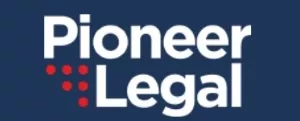This article from Pioneer Legal is most popular:
- within Corporate/Commercial Law topic(s)
- in United States
Param Gupta’s articles from Pioneer Legal are most popular:
- within Corporate/Commercial Law topic(s)
Pioneer Legal are most popular:
- within Insurance, Food, Drugs, Healthcare and Life Sciences topic(s)
- with readers working within the Insurance industries
The Karnataka High Court ("KHC"), on February 16, 2024, held in the case of Exalogic Solutions Private Limited vs. The Director, Serious Fraud Investigation Organisation1 that a pending probe against a company under Section 210 of the Companies Act, 2013 ("Companies Act") does not bar an investigation by the Serious Fraud Investigation Organisation under Section 212 of the Companies Act.
Overview of relevant facts
- A writ petition under Articles 226 and 227 of the Constitution of India was filed before the KHC by Exalogic Solutions Private Limited ("Exalogic") seeking a direction to quash an order dated January 31, 2024, passed by the Director, Serious Fraud Investigation Agency ("SFIO") in case number SFIO/INV/AO/2023-24 ("Impugned Order") on the grounds of it being arbitrary, illegal, and bad in law.
- Exalogic, a one-person company, received several communications from the Registrar of Companies ("ROC") at Bangalore between 2020 and 2023 in relation to certain alleged violations of the Companies Act, including in relation to certain transactions undertaken between Exalogic and Cochin Minerals and Rutile Limited and a related party transaction between Exalogic and Kerala State Industrial Development Corporation.
- Based on preliminary findings, an investigation under Section 210 of the Companies Act was commenced in January 2024. During the course of this investigation, an interim report was issued, which necessitated the assignment of the investigation to the SFIO under Section 212 of the Companies Act, given certain allegations of INR 135 crore being given to political entities without accounting thereof, and the Impugned Order was passed in this regard.
- The writ petition in the present case was filed claiming, inter alia, that during the pendency of investigation under Section 210 of the Companies Act, the investigation could not be changed/ ordered to be assigned to the SFIO under Section 212 of the Companies Act, and it was imperative that an opinion be formed to invoke Section 212 in this regard pursuant to a final report and not an interim one. The petitioners also claimed that the SFIO was established to deal with "huge scams like the Sahara India or Jet Airways", and the present case should not be assigned to the SFIO as it did not fulfil the requirements of the doctrine of proportionality.
Analysis and Ruling
- The KHC noted that the commencement of investigation under Section 210 of the Companies Act did not prohibit the Central Government from assigning the same to the SFIO, and such assignment does not result in duplication of investigation, nor does it take away the rights of the petitioner.
- The KHC referred to Section 212(2) of the Companies Act, which stated that once the SFIO is entrusted with an investigation, any other investigation already initiated shall not be proceeded further, holding that this provision provides sufficient protection to a company from duplication of investigation.
- The KHC also rejected the petitioner's argument that an interim report could not form the basis of such assignment, noting that Section 210 of the Companies Act did not refer to any report, and thus, the same could be interim or final.
- With regard to the petitioner's plea that, based on the doctrine of proportionality, a statute should only be used for the designated proper purpose, the KHC noted that, in its view, the present case qualified for proper purpose, and proportionality could not be considered at this stage of the proceedings, since an investigation was still underway.
- In view of the above observations and findings, the said writ petition was rejected and dismissed by the KHC.
Footnotes
1 Writ Petition No. 4268 of 2024; order dated February 16, 2024.
The content of this article is intended to provide a general guide to the subject matter. Specialist advice should be sought about your specific circumstances.



